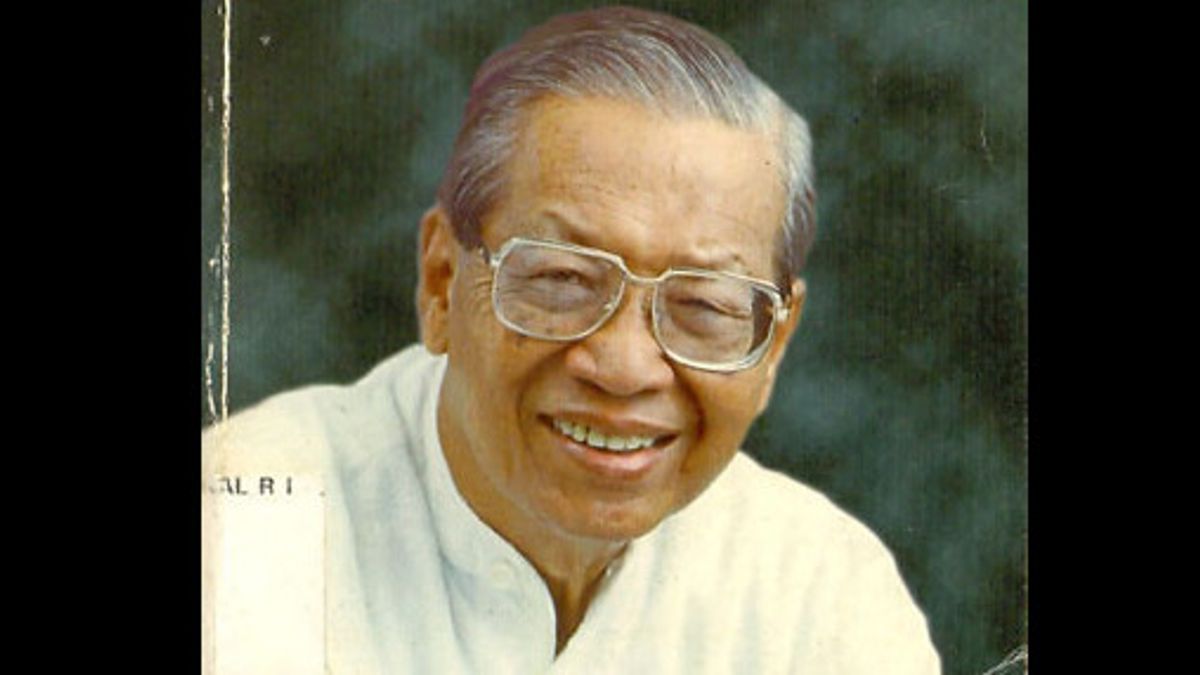JAKARTA History today, 39 years ago, March 5, 1984, Minister of Religion (Menag) Munawir Sjadzali emphasized that there is no reason for Muslims to reject Pancasila as the sole principle. Moreover, Pancasila itself has been fully discussed by Indonesian Islamic figures.
Previously, Soekarno had an important role in the birth of Pancasila. He proposed Pancasila as the basis of the state. The proposal is supported by many parties. Islamic figures, especially. They agree, as long as religious matters are the most important.
Bung Karno's role as the authentic digger of Pancasila cannot be doubted. He launched Pancasila for the first time on June 1, 1945. He unraveled the Pancasila doctrine of five basics' which later became the philosophy of life for the Indonesian people: nationality, humanity, democracy, prosperity, and God.
Islamic leaders also agreed with one condition. They consider that God Almighty must appear at the very top. Islamic figures then ask for additional narratives: with the obligation to carry out Islamic law for their adherents.
Narrative is the subject of debate. Islamic figures consider Islamic sharia matters to be very important. However, Indonesia is not only a'monopoly' of Islamic figures. There are also nationalists and other religions that represent Indonesia's diversity.
Kompromi pun dilakukan. Semua pun sepakat bahwa sila pertama yang ditentukan cukup kepada Ketutuhan Yang Maha Esa tanpa bel-embel. Sila itu mampu menunjukkan bahwa semua rakyat Indonesia hadir dari beragam suku dan agama. Pun pada tanggal 22 Juni 1945 Pancasila disetujui sebagai dasar negara.
Among the nine people (who dissected Pancasila) there were moderate and tolerant Christian figures, namely AA Maramis, while eight others were Muslim, although perhaps different political ideologies. Soekarno, Hatta, Achmad Subardjo, and Yamin represent the political ideology of nationalism.
Meanwhile, Abikoesno, Kahar Moezakir, Salim, and Wahid Hasyim are supporters of the aspirations of Islamic politics. The last four, when viewed from the point of view of Islam, will get the following picture: Abikoesno comes from SI, Kahar Moezakir from Muhammadiyah, Salim from PI, and Wahid Hasyim from NU," said Ahmad Syafii Maarif in the book Islam and Politics: The Theory of Bamboo for the Led Democracy Period 1959-1965 (1996).
In fact, the loss of Islamic sharia frills in Pancasila often provokes debate. Many Muslims do not agree if they do not want to be said to reject the first precept of Pancasila. They think Pancasila is not for Muslims.
The Indonesian government does not remain silent. The owner of power continues to try to explain that Pancasila is the sole principle; it is important to be accepted by Muslims. During the New Order (Orba), for example. A figure who is passionate about socializing the importance of accepting Pancasila is the Minister of Religion, Munawir Sjadzali.
Every time he had the opportunity he always introduced that Pancasila had been recognized by scholars. As a result, there was no reason to reject Pancasila. He also socialized the Pancasila case at the working meeting of the Indonesian Ulema Council (MUI) on March 5, 1984. Everything was done so that Pancasila could be accepted by all Muslims.
Minister of Religion Munawir Sjadzali also has a big role in socializing the importance of religious social organizations receiving the sole principle. In the working meeting of the Indonesian Ulema Council (MUI) on March 5, 1984, Munawir emphasized that there was no reason for Muslims to reject the single principle.
The first historically Pancasila is an agreement from the founder of the republic, which is generally Muslim. Second, the principle of Pancasila in question is not conflicting and detrimental to Islam. This means that Pancasila cannot be aligned with Islam, because it is the principle of living together agreed upon by adherents of other religions, "explained Fikrul Hanif Sufyan in the book The Guardian of Tauhid: Study of the Protest of Tirani Power 1982-1985(2014).
The English, Chinese, Japanese, Arabic, and French versions are automatically generated by the AI. So there may still be inaccuracies in translating, please always see Indonesian as our main language. (system supported by DigitalSiber.id)










